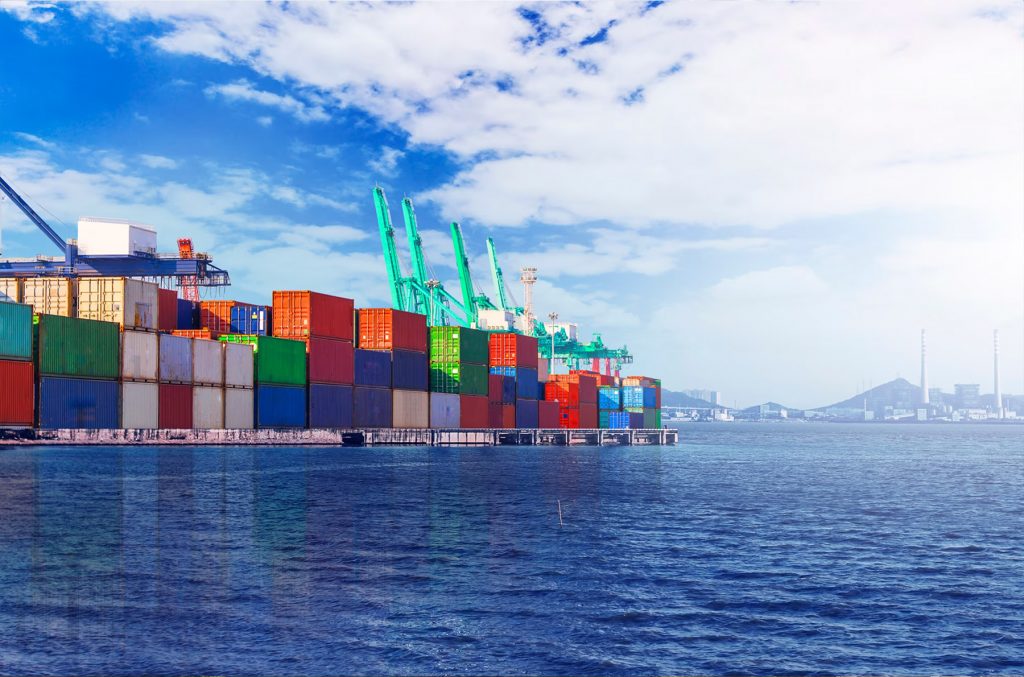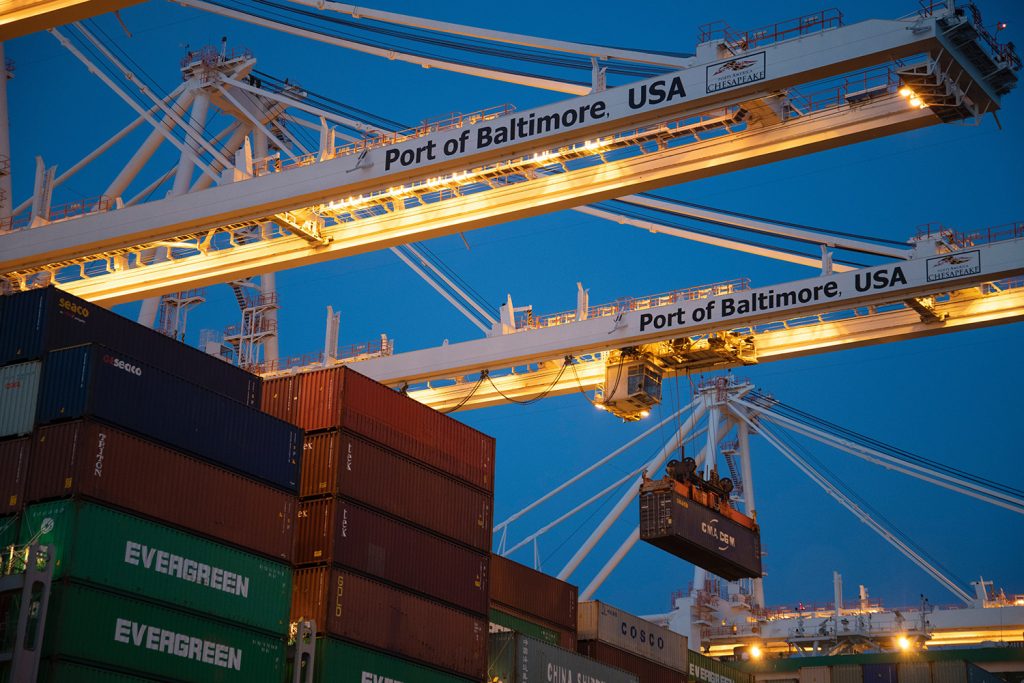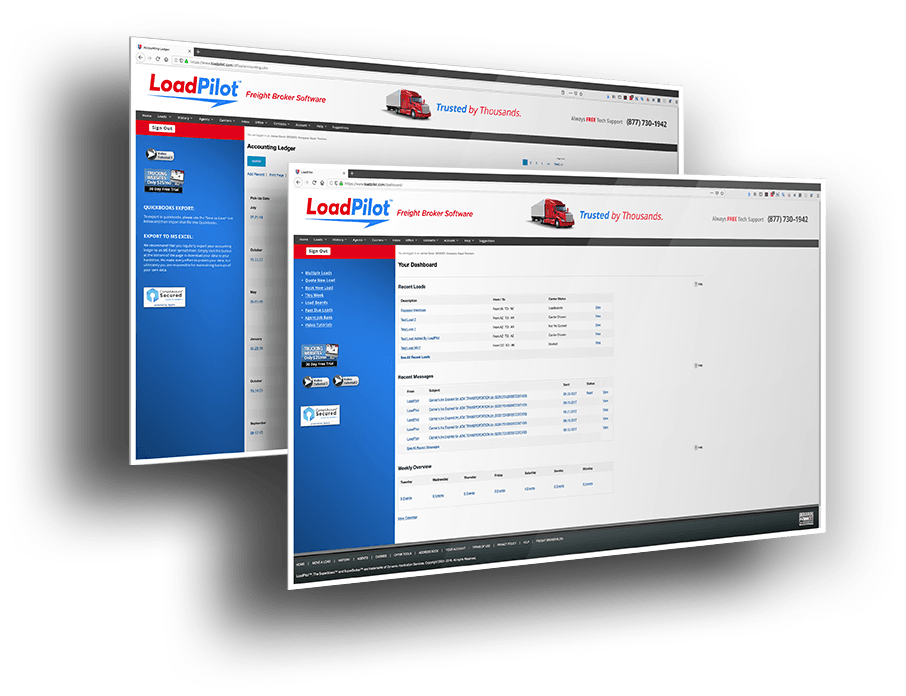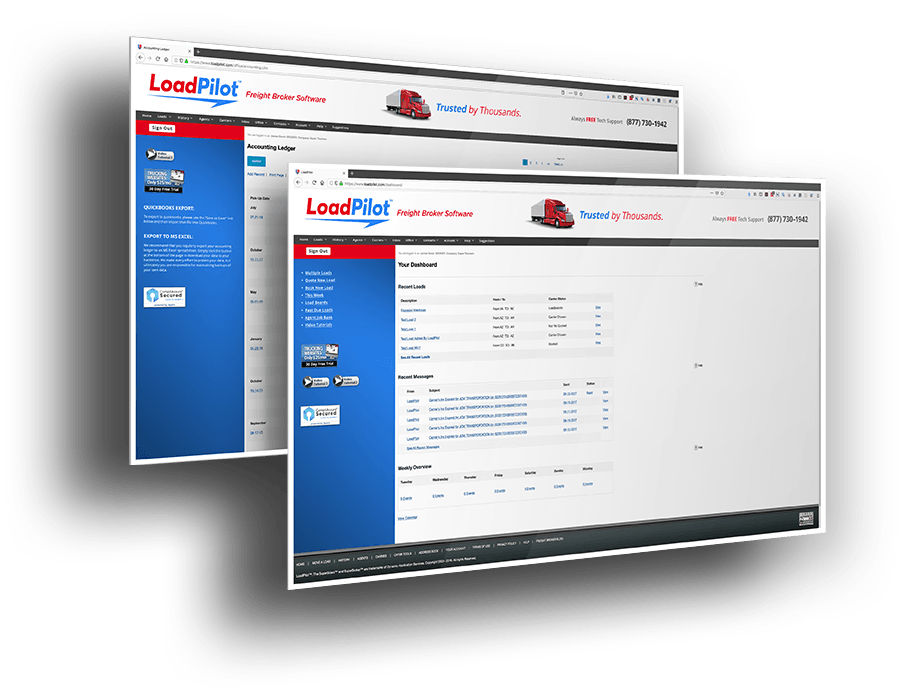You may have heard of freight brokers and freight forwarders, but did you know there is a big difference between the two?
Both are essential to the transportation sector, but what do they do? And more importantly, what’s the difference between a freight broker and a freight forwarder? You may even be wondering how to become a Freight Forwarder or even a broker.
If you’re looking to get into the transportation industry, it’s important to understand these two roles and what makes them unique. Here we break down everything you need to know about these essential industry players.
Keep reading to learn more about the difference between a freight forwarder and their not-too-distant cousin the broker.
Table of Contents
A Quick Overview of Brokers and Freight Forwarders:
The terms Freight broker and freight forwarder have a lot in common and, as a result, are usually used interchangeably all too often. They both work in the logistics company with the end goal of transporting goods to the designated locations. However, the major difference between the roles of these two logistics providers really does set them apart.
To make informed decisions when dealing with brokers, forwarders, or the logistics industry in general, you must understand each service provider’s role. Fortunately, this freight forwarder vs broker article spells out all the differences between the two logistics providers.
There are several services that both brokers and freight forwarders provide but it’s important to note their differences. Brokers tend to focus on domestic transport while freight forwarders specialize in global transport.
What is a Freight Forwarder?
A freight forwarder, like the broker, takes responsibility for the shipment movement on behalf of the shipper. The freight forwarding business oversees the movement of the goods from pickup at the seller’s location to where the buyer wants. They also have the ability to move consolidated shipments – which is great for making good use of limited cargo space. This is extremely common if they are working as ocean freight forwarders.
They have operating authority to legally arrange the transportation of goods. In addition to shipping cargo, freight forwarders may store the goods for their clients. They are certified by the Federal Motor Carrier Safety Administration (FMCSA), allowing them to ship freight under their bill of lading.
There are several names that they are referred to by. You may hear them called ocean freight forwarders in which case they specialize in ocean freight and foreign commerce. On the other hand, air freight forwarders obviously work primarily with air cargo.
A freight forwarder license and freight forwarder authority are requirements for companies that wish to engage in the business of transporting goods.
Legal Requirements
A freight forwarding company must obtain a license before they are allowed to move goods for their customers. The license is needed in order to legally contract with carriers and other entities involved in the transportation process.
The Federal Motor Carrier Safety Administration (FMCSA) is responsible for issuing the license and operating authority, which provide the legal basis and framework for their operations. The licensing process for a new freight forwarding business can take some time however it’s a very important step.
To obtain a freight forwarder license, a company must submit an application, show proof of financial responsibility, and meet other requirements set by the FMCSA.
What Else Can A Forwarder Do?
Other than aiding you in freight rate negotiations and managing paperwork (such as export documentation), freight forwarders also assist with customs compliance and help you understand the rules and regulations of international trade.
In a nutshell, a freight forwarder, in addition to moving freights, can take physical possession of the items and package them into smaller shipments. They can also ship consolidated cargo alongside others going to the same destination and negotiate the transport cost as one.
The forwarder prepares all the shipping documents, including the bill of lading, and the certificate of origin, along with any needed export documentation. Any shipment handled by a forwarder is usually covered by the their insurance policy because they are liable for any damages or losses that happen along the way.

What is a Freight Broker?
A Freight broker is also called a logistics broker or truck broker. Like brokers in most industries, the freight broker works as a middleman in logistics. They serve as an intermediary between the shipper, who is the owner, supplier, or overseer of the goods, and the commercial motor vehicles also known as carriers, who move the goods to the designated location. Their general duty is to ensure the deal goes smoothly between the carrier and shipper.
Keep in mind that the shipment COULD be moved by motor carriers but doesn’t have to be. The most common methods of shipment are by truck, ocean freight, rail, and air. If it’s traveling internationally it’s most likely on a large cargo ship. In this case, you’re more likely to work with a freight forwarder, as they would be acting as an OTIs (Ocean Transportation Intermediaries).
OTIs, or Third Party Logistics Companies (3PL), are the vital links between shippers and transportation carriers. They make it easy to safely and cost-effectively transfer goods from one point of origin to another over seas.
The broker is very different than a freight forwarder and usually matches suppliers to carriers. They vet and choose reliable carriers to work with the shippers. When screening the carriers, the brokers favor experts in moving the goods in question, with clean records and appropriate insurance coverage.
They are required to have a Freight Broker Bond (also called a surety bond). A surety bond is a financial agreement between three parties: the principal (the party that needs to be bonded), the obligee (the party requiring the bond) and the surety (the party providing the bond protection). The purpose of a surety bond is to provide assurance that the principal will fulfill its obligations and act in accordance with the applicable laws.
The broker is very different than a freight forwarder and usually matches suppliers to carriers. They vet and choose reliable carriers to work with the shippers. When screening the carriers, the brokers favor experts in moving the goods in question, with clean records and appropriate insurance coverage.
They are required to have a Freight Broker Bond (also called a surety bond). A surety bond is a financial agreement between three parties: the principal (the party that needs to be bonded), the obligee (the party requiring the bond) and the surety (the party providing the bond protection). The purpose of a surety bond is to provide assurance that the principal will fulfill its obligations and act in accordance with the applicable laws.
When Does a Shipper Need a Freight Forwarder?
A shipper should strongly consider contracting a freight forwarder if they are looking to move their goods long distances (especially if shipping internationally or between multiple countries). Also if they need assistance shipping products to multiple destinations at once. The freight forwarder knows how to make all the logistical arrangements to do this.
This is because a freight forwarder is licensed by the FMCSA and can move freight from one country to another. Freight forwarders have connections that shippers do not have and can get goods to designated locations faster and easier than the shipper could on their own.
They are experienced and can sort the legal requirements of each location while forwarding the shipments until the delivery point is reached. Like brokers, they vet the best carriers for the shipments, negotiate the cost, and ensure that the products reach the final destination as agreed with the shipper.
When Does a Shipper Need Freight Broker?
A freight broker becomes necessary when a business ships goods over long distances. Even if they have been transporting freight without encountering issues, it is advisable to introduce a broker for a better experience. Here are just a few of the advantages of working with a broker or forwarder.
Both A Good Broker or Forwarder Can:
A Reduction in Total Logistics Expenses:
A freight broker helps a shipper to move their goods successfully at a minimal cost. If they have been paying outrageous fees for shipping, it is your duty as a broker to help them save some extra cents. As a trucker or logistics company, the broker also ensures that your payment is fair.
Less Worry Over Goods in Transit:
Since the shipper has already entrusted their goods to you, they should be able to rest easy knowing that their goods are in safe hands.
Streamlined Shipping Process:
The broker is an expert in the logistics business. They know who can handle your goods best, where to find them, and the appropriate cost for the whole procedure. They also have the connections and leverage to negotiate rates that are far better than the shipper could get on their own.
Timely Delivery:
Late delivery can hurt your client’s business. They will see to it that the goods reach the designated place at the right time. This can be more of an issue for an ocean freight forwarder, as the timing of both land and air transportation tends to be easier to predict.
Minimize Damages:
The broker’s job is to ensure a cargo’s safety. They only assign shipments to an expert with adequate experience handling that type of goods. Even when there is damage, ensure that the carrier has insurance that takes care of it. The truck broker also knows how to minimize issues.

The Key Difference Between Freight Brokers and Freight Forwarders
The major difference between freight brokers and forwarders is the complexity of their roles. Simply put, a freight forwarder does much more than a broker.
They not only move the goods from the pickup point to the delivery point. They also take possession of the products, store freight, package it into bits as required by the shipper, consolidate it, and send it to the destination. On the other end, brokers never take possession of the cargo. A big part of the job for either a broker or a forwarder is knowing how to find more shippers.
Freight forwarders have the FMCSA license, which allows them to move goods intercountry under their bill of lading. Conversely, brokers can only facilitate freight shipment within their country. They also move the goods under the shipper’s bill of lading, which is the owner or seller of the products.
Can a Freight Broker Become a Freight Forwarder?
Yes, freight brokers can become freight forwarders. The registration process is the same as that of freight broker registration. First, they need is to submit an application and get their Operating Authority from the FMCSA.
With the right license, proper surety bonds, and of course freight forwarder authority, a broker can take up the job of a forwarder. As both roles have their pros and cons, it is important to understand each one before deciding which one is for you.
In addition, depending on what type of shipments they plan to move, their license may come from any of these various organizations.
- Federal Motor Carrier Safety Administration (FMCSA)
- International Air Transport Association (IATA)
- Federal Maritime Commission (FMC)
The role of a freight broker or forwarder is to simplify the shipment process for shippers. These professionals handle all aspects of the transportation process while meeting all legal requirements of each location until the delivery point is reached. They vet carriers, negotiate costs and ensure shipments arrive on time at their final destination in an efficient and cost-effective manner.
With their help, shippers can rest assured that their goods will get to where they need to be without any hassle or delays. That is why it is important to ensure that brokers and forwarders are well-equipped with the necessary skills and expertise.
So Which Is More Important? A Freight Broker or a Freight Forwarder.
Both freight brokering and freight forwarding are two important roles in the logistics industry because they have specific areas where they can be applied. Some logistics companies do the job of both the freight forwarder and the broker, while others specialize in either of the fields.
If you have been considering moving into either of these fields we hope this comprehensive broker vs freight forwarder article was helpful. Whichever category you fall into, ensure you are authorized to carry out the services and provide the best shipment to your clients.
Final Thoughts on Freight Broker Vs Freight Forwarder
It is important to understand the differences between a freight broker and a freight forwarder to ensure that you get the best service for your business needs. Freight brokers facilitate shipments within their country while freight forwarders move goods intercountry under their own bill of lading.
Both roles are important for ensuring efficient logistics operations but each has its unique scope of services and capabilities. Knowing which one to use will depend on your specific requirements so be sure to assess them carefully before making any decisions. With this knowledge, you can now make informed choices about who should handle your shipment movement from start to finish (or about what role you may want to work in).
We hope this helped you better understand a little more about what it takes to be a successful freight broker or forwarder.
Bonus Tip
Are you in the logistics business working as a freight forwarder or a broker or even an agent? Do you need to increase your sales? LoadPilot ® is the perfect place to find shippers, manage your agents/carriers, send a quote, handle rate confirmations, and manage your logistics business in general.
You’re sure to run a better logistics business when you use LoadPilot because it is software built by brokers for brokers. What’s more, LoadPilot ® is easy to use and comes at a fair price for all freight brokers and forwarders. If you’re ready to run a fast-tracked freight brokerage or forwarding business then try our 30-day free test drive.


